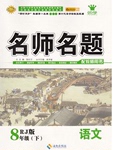题目内容
【题目】假段定英语课上老师要求同桌之间交换修改作文,请你修改你同桌写的以下作文。文中共有10处语言错误,每句中最多有两处。错误仅涉及一个单词的增加、删除或修改。
增加:在缺词处加一个漏字符号(∧),并在其下面写出该加的词。
删除:把多余的词用斜线(\)划掉。
修改:在错的词下面划一横线,并在该词下面写出改正后的词。
注意:
1. 每处错误及其修改均仅限一词;
2. 只允许修改10处,多者(从第11处起)不计分。
Dear Jenny,
Now I’d like to tell you something about my pare-time job this summer vacation, in that I worked as a guide in a travel agency.
The work was interesting but tired. I think it was helpful to work this holiday. It was the first time that I have earned money on my own. I’ve come to understand how hard my parents work to support for the family. I used to keep on ask them for money, but now I’ve never waste money and learn to share worries with my parent. I’ve learnt how to get along well with others. What’s worse, I’ve gained some working and social experience and I have learnt something can’t learnt from textbooks. All these will be good for my future. In a word, I had the wonderful or valuable summer vacation.
【答案】
【1】in that---in which
【2】tired---tiring
【3】have---had
【4】把support for中的for去掉
【5】ask---asking
【6】parent---parents
【7】worse---more
【8】在something后加that
【9】把the wonderful中的the改成a
【10】or---and
【解析】
【1】in that---in which 考查非限制性定语从句,介词后面的关系代词,指人时用whom,指物时用which,故把in that---in which。
【2】tired---tiring 此处物做主语,句意是:工作有趣但令人厌烦。Tired感到厌烦的;tiring令人厌烦的,故把tired---tiring。
【3】have---had 在此复合句中主句的时态是一般过去时态,故后面从句的时态用过去完成时态,所以把have---had。
【4】把support for中的for去掉 在此句中support养育,是及物动词,故把support for中的for去掉。
【5】ask---asking 固定搭配keep on doing持续不断地做某事,故把ask---asking。
【6】parent---parents 此处表达的意思是:和我的父母分享担忧,故把parent---parents。
【7】worse---more 根据上下文可知此处表达的意思是:另外,此外。故把worse---more。
【8】在something后加that 在此句中something是先行词,定语从句中缺引导词,缺主语,故在something后加that。
【9】把the wonderful中的the改成a 此处表达的意思是:我有一个精彩的、有价值的暑假。故把the wonderful中的the改成a。
【10】or---and 此处wonderful和valuable是并列关系,故把or---and。

 优学名师名题系列答案
优学名师名题系列答案【题目】请认真阅读下面短文,并根据所读内容在文章后表格中的空格里填入最恰当的单词。注意:请将答案写在答题卡上相应题号的横线上。每个空格填1个单词。
The job of raising children is a tough one. Children don’t come with an instruction handbook. And each child is different. So parents sometimes pull their hair out in frustration, not knowing what to do. But in raising children----as in all of life---what we do is influenced by our culture. Naturally then, American parents teach their children basic American values.
To Americans, the goal of parents is to help children stand on their own two feet. From infancy, each child may get his or her own room. As children grow, they gain more freedom to make their own choices. Teenagers choose their own forms of entertainment, as well as the friends to share them with. When they reach young adulthood, they choose their own careers and marriage partners. Of course, many young adults still seek their parents’ advice and approval for the choices they make. But once they “leave the nest” at around 18 to 21 years old, they want to be on their own, not “tied to their mother's apron strings.”
The relationship between parents and children in America is very informal. American parents try to treat their children as individuals─ not as extensions of themselves. They allow them to fulfill their own dreams. Americans praise and encourage their children to give them the confidence to succeed. When children become adults, their relationship with their parents becomes more like a friendship among equals. But contrary to popular belief, most adult Americans don’t make their parents pay for room and board when they come to visit. Even as adults, they respect and honor their parents.
Most young couples with children struggle with the issue of childcare. Mothers have traditionally stayed home with their children. In recent years, though, a growing trend is to put preschoolers in a day care center so Mom can work. Many Americans have strong feelings about which type of arrangement is best. Some argue that attending a day care center can be a positive experience for children. Others insist that mothers are the best caregivers for children. A number of women are now leaving the workforce to become full-time homemakers.
Disciplining children is another area that American parents have different opinions about. Many parents feel that an old-fashioned spanking(一顿打) helps youngsters learn what “No!” means. Others prefer alternate forms of discipline. For example, “time outs” have become popular in recent years. Children in “time out” have to sit in a corner or by a wall. They can get up only when they are ready to act nicely. Older children and teenagers who break the rules may be grounded, or not allowed to go out with friends. Some of their privileges at home like TV or telephone use may also be taken away for a while. Although discipline isn't fun for parents or children, it’s a necessary part of training.
Being a parent is a tall order. It takes patience, love, wisdom, courage and a good sense of humor to raise children. Some people are just deciding not to have children at all, since they're not sure it's worth it. But raising children means training the next generation and preserving our culture. What could be worth more than that?
Paragraph outline | 【1】_________ details |
Introduction | It is no easy task to bring up children. Parents sometimes feel very 【2】______, not knowing what to do. |
The goal of parents | They help children to learn live 【3】_______ from infancy on. |
The relationship between parents and children | An informal relationship exists between American parents and children. Children are praised and 【4】______ to realize their dreams. ●Children are treated equally more like friends. |
The issue of childcare | Most young couple struggle with this issue. ●【5】_______, mothers stayed at home with kids. ●Recently, a day care center is 【6】______ preschoolers are put. ●There is an argument over whether attending a day care center is a positive experience for children. |
【7】_____to discipline children | American parents have different opinions. ● “Time outs” have gained 【8】_____ in recent years. ●【9】________ away some privileges is a way to punish some older children and teenagers. |
Conclusion | Raising children takes patience, love, wisdom, courage etc, but it is 【10】________ it. |